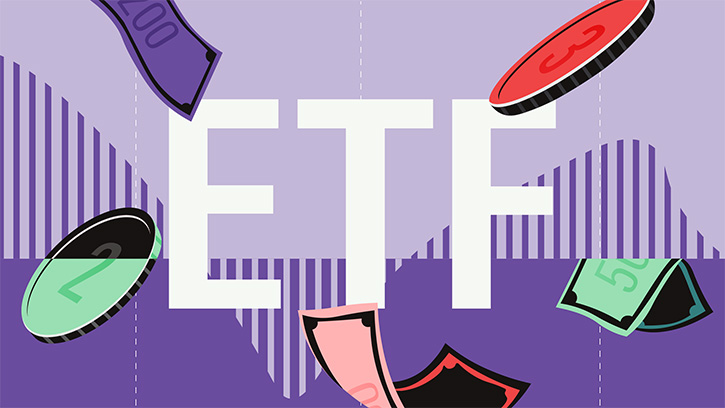Ollie Smith: Now, you could be forgiven for thinking that increases in interest rates would translate to better returns on your cash savings. But one look at price comparison websites for bank accounts would tell you otherwise, because banks have been reluctant, so it would seem, to pass on that to their customers. One solution is the money market fund, which can be held in an ISA or GIA account. And here to tell me more about them is Mark Preskett, who is Morningstar Investment Management's Senior Portfolio Manager.
Mark, thanks so much for being with me. Could we just start with the basic question for beginners at home. What do money market funds do and how do they work?
Mark Preskett: Hi, Ollie. Thanks for having me. So, money market funds, as you mentioned, provide an alternative to bank savings accounts. They invest in money market instruments, which I'll talk about a little bit later, but generally, they're open-ended funds, they're offering you daily dealing, daily liquidity, can be held in things like an ISA or in a SIPP. And ultimately, their job is to deliver a return commensurate to the prevailing Bank of England's base rate or the base rate of the country of issue.
OS: For sure. And how do the rates actually differ from current accounts and what kind of returns can investors expect there?
MP: So, for a U.K. investor, a UK buyer of a money market account, it will be roughly where the Bank of England base rate is, which at the moment is around 3.5%. In the US, you're more likely to get maybe 4.5% and in Europe, down to 2.5%. You compare this to a bank account. So, just scanning the papers this morning, HSBC's online saver account is offering a 0.65% return gross of fees. Lloyds are offering their investors 0.6%, Barclays around 0.6% as well. So, there's a big difference now today, that 3.5% compared to the 0.6% you can get off the high street.
OS: And you mentioned instruments, so let's do that. Let's talk about that then. What kind of things do these funds invest in?
MP: So, as ever, the investment industry loves jargon. So, the instruments you look, you scan the fact sheet, you can see names like time deposits, certificates of deposits, commercial paper, asset-backed commercial paper, repos or repurchase agreements, floating rate notes. This all sound incredibly complex and sophisticated instruments when ultimately the manager is buying up debt that is issued by typically a bank or a large corporation and in return is receiving interest commensurate with the prevailing market rate.
OS: So, it's really a way to sort of put some heavyweight power behind your savings. How do managers actually boost returns? What are they looking to do?
MP: So, first of all, it's important to say that the money market funds are incredibly competitive. So, they will all compete with each other and they will offer you the best rate. So, the return is reduced by fees, manager fees. So, you have to pay that manager some level of fee, and you can compare that on the factsheet. But then, the manager can look to boost returns, firstly, by duration management, so buying up debt with slightly longer maturities. Other things being equal, the longer the maturity, the higher return. He can also issue a risk. So, a bank domiciled in, say, the Middle East or China would be forced and with a lower credit rating, forced to offer a higher interest rate than, say, a Bank of America or a Lloyds Bank issued in the US or the UK.
OS: And then, just finally, I mean, for anyone at home who is thinking, oh my gosh, how do I go about picking a fund like this, where should they start?
MP: So, Morningstar has some categories to help you with that. We've created the money market category and the money market short-term category, and there's categories in sterling, euro and USD. And broadly speaking, 90%, 95% of all money market funds will be housed in those two sectors. The short-term takes a lower duration, lower interest rate risk and is going to offer you a slightly lower return. The broader category of the money market will give you a slightly higher return. But basically, those two are a good starting point for an investor.
OS: Fantastic. Mark, thanks so much. If you are interested in interest rates and beating inflation, check out our near daily updates on the situation in the U.K. at the moment on Morningstar.co.uk. Until next time, my thanks to Mark, I've been Ollie Smith for Morningstar.


























